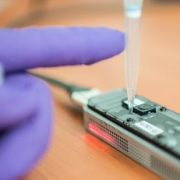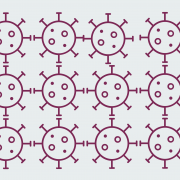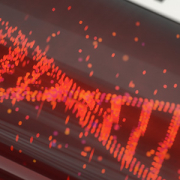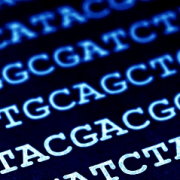Evolution of immunity: The genomic link between Covid-19, Crohn’s disease and the Black Death
New research shows that the same genes that helped our ancestors survive the bubonic plague are still hard at work today
What do Covid-19 and the Black Death have in common? On the face of it, not much – besides both causing global pandemics. They’re not even the same types of infection: Covid-19 is caused by a virus, while the Black Death was born from bacteria.
However, new research suggests that the two may share more than you might think. Evidence has been put forward that a gene variant that helped people survive the Black Death also significantly lessens the impact of Covid-19. Don’t get too excited, though: the same variant is also responsible for a greater risk of Crohn’s disease and other autoimmune conditions.
The Black Death
The Black Death was a pandemic of bubonic plague caused by the bacterium Yersinia pestis that swept through Europe, North Africa and the Middle East from 1346 to 1353, killing between 30% and 60% of the population in affected areas.
After that first pandemic there were further major outbreaks, the last of which in the UK was the Great Plague of London, which was recorded in the diary of Samuel Pepys in 1665. Even now the disease has not been fully eradicated: new cases have occurred as recently as 2020.
Seeking to understand how such historical diseases have contributed to modern-day disease susceptibility, an international group of researchers began looking at DNA extracted from 500 14th-century skeletons buried in the UK and Denmark, comparing immune genes in those buried before, during and after the pandemic.
The research, published in Nature last year, found that gene variants that helped our ancestors survive the Black Death remain common in our genomes today. Researchers discovered variants in four genes that were more common in plague survivors, but one especially stood out: people with two copies of a specific variant of the ERAP2 gene were 40% to 50% more likely to survive than those who had no copies.
ERAP2
The gene ERAP2 encodes a protein that helps the immune system recognise the presence of an infection. There are two common variants: one that makes a full-length protein, and one that makes a truncated, non-functional protein. It is the full-length protein that appears to have been protective against bubonic plague, and which more recent research has now shown also offers protection against becoming seriously ill with Covid-19.
As part of this new study, researchers from across the UK have been looking at ERAP2 variants in the genomes of Covid-19 patients. Using data from sources including UK Biobank and the GenOMICC consortium, they have been looking for associations between ERAP2 variants and infectious and autoimmune diseases.
Balancing selection
Results have shown that, just as those of our ancestors with the full-length ERAP2 protein were less likely to die of bubonic plague, people with the same protein today are less likely to become critically ill with Covid-19. It’s not all good news, however: the research has also uncovered that those with the full-length ERAP2 protein are at greater risk of developing autoimmune diseases such as Crohn’s disease and rheumatoid arthritis.
“Although we don’t know the exact mechanism influencing disease risk, carriers of alleles that provide more protection against respiratory disease seem to have an increased risk of autoimmune disease,” said study leader Dr Fergus Hamilton, a clinical doctoral fellow at the University of Bristol and North Bristol NHS Trust. “It is potentially a great example of a phenomenon termed ‘balancing selection’ – where the same allele has a different effect on different diseases.”
As noted in last year’s Nature article, infectious disease is one of the strongest selective pressures driving human evolution. That researchers would strive to understand the links between genetics and disease susceptibility in order to identify potential treatments, therefore, seems a no-brainer; however, the trade-off in the case of the ERAP2 protein – which will increase cases of autoimmune disease in present-day populations even while protecting against infectious diseases – is a prime example of the need to weigh up all risks when confronted with cases of balancing selection.
–









